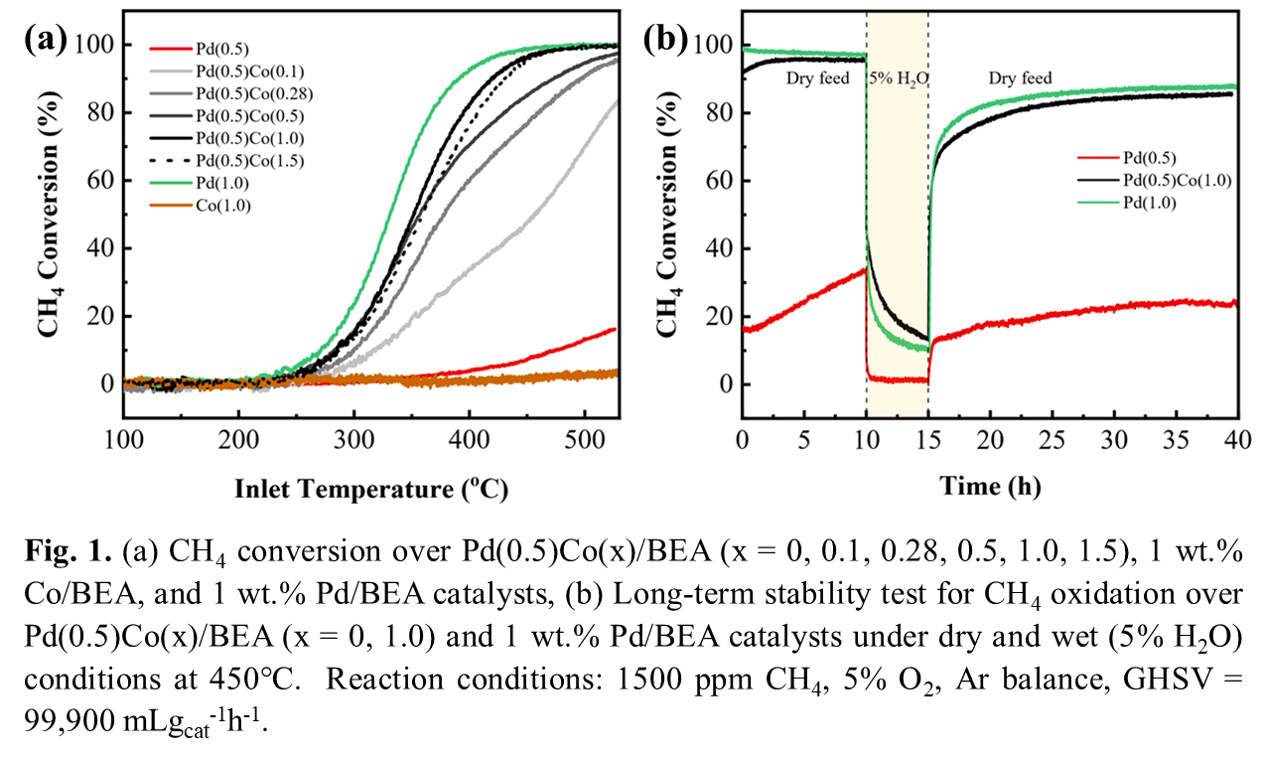(628f) Cobalt As an Efficient Promoter in Low-Loading Pd/BEA Catalysts for CH4 Oxidation
AIChE Annual Meeting
2020
2020 Virtual AIChE Annual Meeting
Catalysis and Reaction Engineering Division
Emissions Control II: NOx Reduction and Hydrocarbon Oxidation
Thursday, November 19, 2020 - 9:00am to 9:15am
Herein, we report a facile method that decreases Pd usage in 1 wt.% Pd/BEA while maintaining the CH4 oxidation performance. These results are achieved by introducing 0 – 1.5 wt.% cobalt (Co) in 0.5 wt.% Pd/BEA (Pd(0.5)/BEA) zeolites (Si/Al = 12.5). CH4 conversion of Pd(0.5)/BEA at 500℃ was as low as 12% (Fig. 1a), attributed to the majority of Pd being present in its ionic form. Co-impregnation of Co with Pd in BEA zeolites led to an enhanced CH4 oxidation performance. Specifically, an increase in Co loading from 0.1 to 1 wt.% led to a decrease in the CH4 oxidation T50 from 456 to 352℃. Pd(0.5)Co(1.0)/BEA showed the best performance with T50 and T90 equal to 352 and 419℃, respectively. Stability tests at 450℃ (Fig. 1b) showed that Pd(0.5)Co(1.0)/BEA had a similar CH4 conversion (~94%) and was more water resistant than Pd(1.0)/BEA. This work illustrates that Co incorporation in Pd/BEA zeolites can achieve the same CH4 oxidation performance results with 50% reduction of precious metal usage.
Reference
[1] K. Khivantsev, N.R. Jaegers, L. Kovarik, J.C. Hanson, F. Tao, Y. Tang, X. Zhang, I.Z. Koleva, H.A. Aleksandrov, G.N. Vayssilov, Angew. Chem., 57 (2018) 16672-16677.

